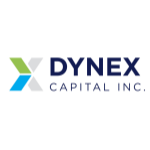Rankings - Highest Dividends Companies
As you review our list of companies offering the highest dividends, you may come across names that are well-known as well as those that are less familiar but equally significant. This list aims to provide a comprehensive view of the companies that stand out in terms of their dividend offerings.
Whether you're an investor looking for income-generating stocks, a business analyst conducting research, or simply someone interested in the financial metrics that distinguish companies, this list will serve as a valuable resource.
What Are Dividends?
Dividends are payments made by corporations to their shareholders, usually in the form of cash or additional shares. These payments come from a company's earnings and are distributed at regular intervals, often quarterly.
Dividends can be an attractive feature for investors looking for a stable income, but they also offer insights into a company's financial health and business strategy.

Why Dividends Matter
Dividends hold significant importance in the investment landscape for multiple compelling reasons, providing key advantages for both novice and seasoned investors:
- Stable Income: One of the most attractive features of dividend-paying stocks is the stable income they generate. Dividends offer a dependable stream of cash flow that can be particularly beneficial for retirees or those looking to supplement their income. This financial predictability enables investors to plan their expenses more effectively.
- Reinvestment Opportunities: Dividend reinvestment plans (DRIPs) allow investors to automatically reinvest their dividends in additional shares of the company. By doing so, they benefit from the power of compounding, which can significantly amplify long-term investment gains. This reinvestment strategy is particularly appealing for investors who are in the wealth accumulation phase of their life.
- Indicator of Company Health: Regular and increasing dividend payouts are generally a sign of a company's robust financial standing. Companies that afford to distribute dividends are usually well-established with a proven track record of generating profits. Hence, dividends can serve as a litmus test for assessing a company's fiscal stability.
The Flip Side of Dividends
However, like any other financial instrument, dividend-paying stocks come with their own sets of caveats and considerations that prudent investors should be mindful of:
- Limited Growth Potential: A company that pays out a large portion of its earnings as dividends often has fewer funds available for reinvestment in growth opportunities. In some cases, high dividends may signal that a company has reached a stage of maturity where exponential growth is unlikely, making it less appealing for growth-focused investors.
- Risk of Reduced Payouts: While dividends provide a reliable source of income, they are not guaranteed. Economic downturns, industry volatility, or internal business challenges could strain a company's finances, leading to reduced dividend payouts. Consequently, depending on dividends for income involves a degree of risk that investors must be willing to shoulder.
Strategies for Dividend Investing
Understanding your financial objectives can guide your approach to dividend investing:
- Income-Oriented Strategy: Investors whose primary goal is to secure a consistent income may be inclined to concentrate their portfolios on high-dividend-paying companies. These are often blue-chip stocks or businesses operating in mature industries, such as utilities and real estate investment trusts (REITs).
- Growth-Oriented Strategy: Some investors seek a more balanced portfolio by mixing stocks from high-growth sectors with companies that offer moderate but consistent dividends. This approach aims to capture the upside of capital appreciation while still benefiting from a steady income stream.
Companies with High Dividend Yields
Attaining a high dividend yield is a notable accomplishment for a company and a compelling lure for a certain subset of investors keen on income generation.
High-dividend-yielding companies contribute significantly to overall market stability. Although they might not offer the high growth potential that some investors seek, they often act as a bulwark against market volatility, serving as a safe haven during economic downturns.
Characteristics of High Dividend Companies:
- Industry Stability: High-dividend companies are usually found in stable, mature industries—think utilities, consumer staples, or healthcare. In these sectors, revenue and profits are relatively predictable, making it feasible for these companies to commit to regular dividend payments.
- Strong Financial Health: Such companies often boast robust balance sheets fortified with solid cash reserves. This financial resilience enables them not just to pay out dividends consistently but also to reinvest in business operations, thereby ensuring long-term viability.
- Appeal to Income-Focused Investors: High-dividend-paying companies tend to attract a demographic of investors who prioritize income over capital gains. This generally leads to a more stable stock price, offering some degree of protection against market volatility.




































































































